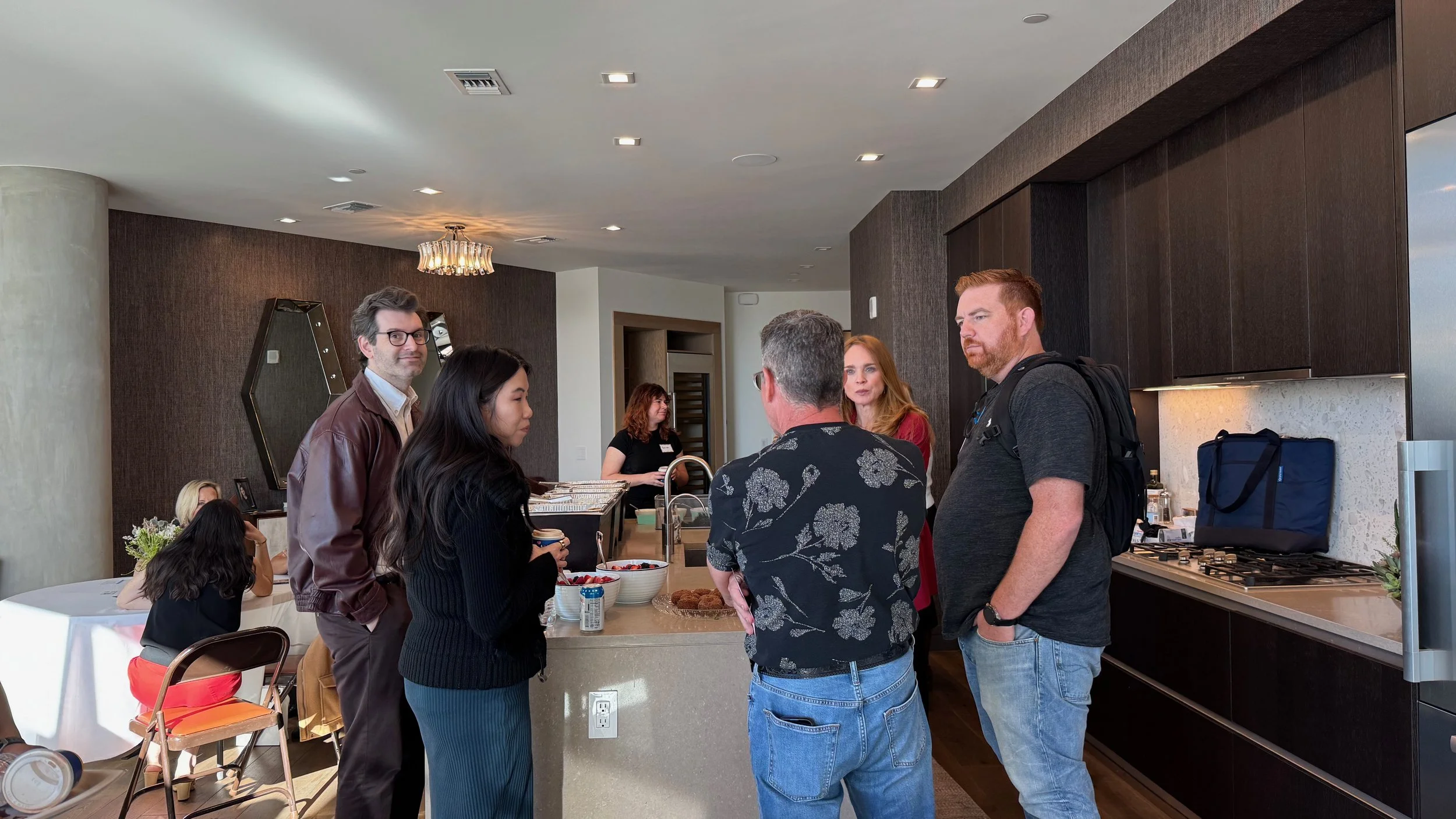What We Learned About Workplace Civics at SXSW
Growing up, my Midwestern parents passed down a classic piece of etiquette: “Never discuss politics, religion, or sex at the dinner table.” At that time, good manners meant avoiding controversial or emotionally charged topics—especially in front of friends and neighbors.
But today, the world has changed. Conversations about complex societal issues are happening everywhere we go—including in the workplace. Yet, many people feel unprepared, or even fearful, of engaging in these discussions constructively, particularly when perspectives differ.
That’s why I partnered with Civic Alliance and Democracy Works to host the Civics at Work panel and roundtable at SXSW 2025. We explored how companies can foster respectful civic dialogue and embed civic responsibility into their organizational DNA.
Three exceptional civic leaders joined me:
Marjorie Clifton, an expert in political communications and media,
Angelica Smith of Democracy Works, who brings deep experience in corporate partnerships, and
Mollie Ferro-Hart of Civic Alliance, a champion of corporate civic engagement.
Together, we shared real-world examples and approaches to navigating today’s civic landscape inside the workplace.
Then, through a hands-on experience, participants from across sectors—tech, finance, nonprofit, government—joined in real-time exercises on civil discourse. The result? A room full of engaged professionals thinking critically, speaking openly, and listening generously.
We explored critical questions like:
How is your organization adapting to today’s rapidly evolving political, economic, and social environment?
What strategies are companies using—successfully or unsuccessfully—to address civic and social issues?
What’s one immediate action you can take to integrate nonpartisan civic education into your workplace?
The conversations were rich, challenging, and hopeful.
Here are a few takeaways I believe every workplace leader should know:
No Shortage of Challenges to Address
We’ve Got a Civic Literacy Crisis
Startling fact: nearly two-thirds of Americans can’t name all three branches of government (Annenberg Public Policy Center). Meanwhile, civics education receives just $0.15 per student, compared to $54 for STEM. That’s not just a knowledge gap—it’s a leadership challenge. And workplaces have a powerful opportunity to help close it.
Trust Has Shifted—To You
According to the 2024 Edelman Trust Barometer, 79% of employees trust their employer—more than they trust business (66%), NGOs (57%), government (55%), or media (52%). In an era of declining institutional trust, the workplace has become a new civic arena. Your team is looking to you to lead with clarity, neutrality, and purpose.
Polarization and Misinformation Are Business Risks
Workplace polarization leads to tension, disengagement, and productivity loss. And 71% of Americans encounter misinformation at least once a month. Business leaders must treat media literacy and civic awareness as essential parts of employee development—not just nice-to-haves.
Civic Engagement Is a Business Strategy
Civic engagement isn't just a nice-to-have, but a must-have for workplaces today.
Embedding civic values into your company culture improves brand trust, employee retention, and resilience during moments of public scrutiny. It’s not just about voting drives (though those are great!)—it’s about building a culture where dialogue is civil, information is credible, and participation is encouraged every day.
Practical Strategies You Can Use
Here are some of the ideas and tools we discussed at SXSW:
Train for media literacy. Equip your workforce to think critically, identify misinformation, and navigate today’s flooded news landscape.
Host internal civic engagement events. From town halls to policy briefings, there are countless ways to educate and unite employees around civics.
Use structured decision frameworks. Don't fly blind. Align civic engagement decisions with company values and risk management strategies.
Partner with trusted, nonpartisan orgs. Use platforms like BallotReady and Issue Voter to provide accurate info to employees .Also, organize employee volunteer oportunities at orgs like IGCI, Generation Citizen and more.
Bring in resources like:
IGC Institute Online - A free online community with the resources and support you need to build a nonpartisan, respectful, civic-minded culture at your job
Civic Alliance’s Vote Local Toolkit – Guide your team through local elections.
IGCI Executive or ERG Field Trips – Help leaders understand civic processes in this hands-on event tailored to your workplace.
Start Now. Don’t Wait for a Firestorm.
Too often, businesses only think about civic engagement when it’s reactive—after a PR crisis or a controversial issue hits the headlines. But the most trusted, resilient companies are those building civic awareness proactively and inclusively. If you wait until your values are tested, it’s already too late to build trust.
What’s Next?
At the end of our session, we asked: What’s one action you can take this quarter to bring civics into your workplace?
The answers were hopeful. Leaders committed to hosting voter education sessions, launching media literacy modules, and starting dialogue circles. Small steps—but powerful ones.
If you're a business leader ready to join them, we invite you to reach out today!



